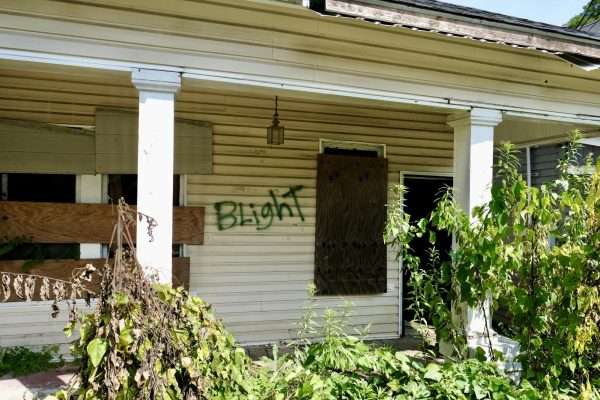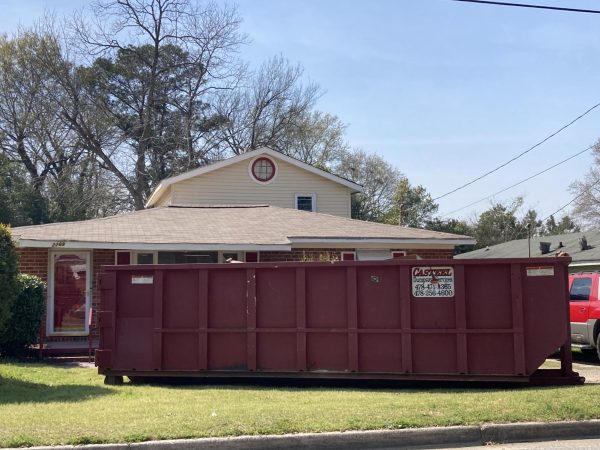Take off the Mask – A Southern Souls Story; Black Lives Matter Edition
Shareia, 40 – Georgia Realtor; Coldwell Banker.
Southern Souls is a story-telling series that offers a personal look into the lives of people around us, showing that all souls can relate to one another through our laughter and tears, successes and failures. In keeping theme with the Black Lives Matter movement, we’re temporarily shifting the focus of the series to highlight what some have perceived as racially motivated incidents that have had lasting impacts on black people living in Georgia. The goal is to discuss, educate and grow as a community, so that we can all come together and create a more inclusive environment for generations to come.
I met Shareia a few years ago in Hawkinsville, Georgia. My closest friend in Macon, Becca, grew up there and from time to time, my son and I would make the trip with her and her kids to visit her family. It was one of those times that I met Shareia. To be honest, I was surprised she was there. From the times I’ve spent in Hawkinsville, I never noticed many black people, so I figured I must be Becca’s only black friend. I was just as wrong as I was ignorant to think that. I later found out Becca’s family has always been inclusive of all races, even her grandparents, but that’s a different story for a different day.
After meeting, Shareia and I became friends on social media. I was scrolling through my news feed when I saw her post from June 10th (2020) following a “Black Lives Matter” protest in Hawkinsville. It read:
I guess I have been living in a bubble. I went to a peaceful protest today in Hawkinsville, GA. The message was unity, prayer and following the right leaders. It was the first time I have ever been a part of a protest. I’ve seen it on television a lot lately, but never really contemplated participating in one until this opportunity came. It felt awesome to be a part of a nationwide movement focused on abolishing systemic racism, all people treating all people with the respect they deserve and justice.
Now, after the protest was over……. me, one of my Caucasian Sisters (whom I will not mention because of the backlash they may get from a secret racist), her family and our kids went to the end of the block to hold our signs. Here’s where the bubble popped. I could not believe the looks, the remarks and the actions of some of the Caucasian people driving pass us. Listen, I was super surprised. I live in this town. I visit with a multitude of great Caucasians (whom I will not mention because of the backlash they may get from a secret racist) and they visit with me AT OUR HOMES. We genuinely love each other. I am surprised to know serious hate exists around me in this small town. Because of a sign? Because we are rallying together in peace?? You, who shouted hate towards me today. You, who did not want to look at my brown face in passing. You, who considered my peach skinned sister (who loves me ENOUGH to stand for something that should be unjust to all people) a disgrace. You….You…I pray that your heart is healed. I pray that you embrace a person outside of your race. I pray that you have the opportunity to eat with them. I pray you understand them and find that you actually like them. I pray that you love them one day and call them a friend. I pray that your hate weight is lifted.
Another white friend (whom I will not mention because of the backlash they may get from a secret racist) said to me tonight that the community of racist people will not listen until other white people stand up and stand against racism. If you’re not a secret racist, please stand up and say something that may change the hearts of those people with pure hate resting in their chest. If you were a secret racist and you’ve changed, please stand up and change another heart. Please.
I understood what she meant by ‘secret racist.’ Being lighter-skinned, I’m no stranger to some of the statements, jokes or comments made by someone outside of my race when they forget I’m within earshot. But this is the South; Shareia was born and raised here, how is it possible that she really hadn’t felt racism?
“Growing up for me was different than the average black person,” she said. There was so much when it comes to race that I didn’t realize. I really don’t think I ever knew that any white person would consider me as inferior.”
Shareia and I were talking over an Internet chat service and while the video clarity wasn’t always the best, I could see the genuine look of confusion on her face. In fact, I’m sure it rivaled my own look of confusion. But as Shareia explained more of what her life was like growing up, it started to make sense. Although her parents had her when they were teenagers, Shareia grew up in an upper, middle class family. Raised in Dublin, Georgia before moving to Hawkinsville, she grew up among other well to do families, both white and black, but mostly white. Since she had never had a problem in the past, she wasn’t expecting one in the present, but when the rally ended, Shareia was hit with a hard dose of reality
“I was expecting it to be like a parade. We’re holding these signs and everybody that comes by, they’re going to be blowing their horns and waving, but when I saw the snares and heard the [profane] comments,” she paused before continuing, “I was seeing all these familiar faces. Hawkinsville is a very small town. We have one grocery store, we have a Walgreen’s and a Dollar General, that’s it. I’ve sparked friendly conversations with some of these people.”
I asked her how that felt, to see these people she happily chats with from time to time, now glaring at her and in one case, circling the block screaming profanity at her, her children and, worth noting, her group of white friends.
“I felt surprised. I was appalled. And by the time I got home, I think a certain level of anger started to resonate. So, I got on my computer and constructed that post. I wanted to do it then because of the passion I felt,” she told me.
Keeping in mind that Hawkinsville is a small town and her post was made publicly, I asked if it got the response she was hoping for. “Most people were saying that they were sorry I experienced that or I’m sorry this happened to you. But I didn’t want that. What I really wanted in that post was for people to say, ‘I am against racism. I’m not for racism, I will never be for racism. I stand with you.’ That’s what I wanted to hear. But instead I got this ‘poor, pitiful Shareia I’m sorry this experience was your experience.’” She said others told her how much they had always loved and admired her family but “all I heard in those comments were, you are the exception; but I don’t want to be the exception.”
I wanted to know what made her feel like the exception if the messages being posted to her page were supportive. Here’s the twist, Shareia was wearing a mask as protection from COVID-19 and sunglasses since they were outside. So with her face covered, some of the passersby, she thinks, didn’t realize that she is the same woman they would normally exchange pleasantries with and that made her wonder how these people treat other blacks who may not be like Shareia. “My family is well spoken and presentable. We’re active in the community and school. We’re coaches at the [county] recreational department, my husband and I. But I want to know that some of my other family members who aren’t as educated as me, or my grandparents, who grew up during segregation, will be treated the same way that (I am).”
I asked Shareia what she hopes will come out of this. “I had a mask because we were required to wear it,” she said. In writing that public post, “I took my mask off and I want you to take yours off. I want you to be the same person at all times. If that’s a negative person, then let’s have a change of heart. Let’s work on that together.”
Click here for more Southern Souls stories.
Southern Souls is comprised of actual, in-person interviews conducted by Amyre Makupson. Some statements may not be in chronological order. Names and locations may be changed to respect the privacy of participants. The views and opinions expressed herein do not necessarily reflect the views and opinions of Amyre Makupson or The Center for Collaborative Journalism at Mercer University.



















